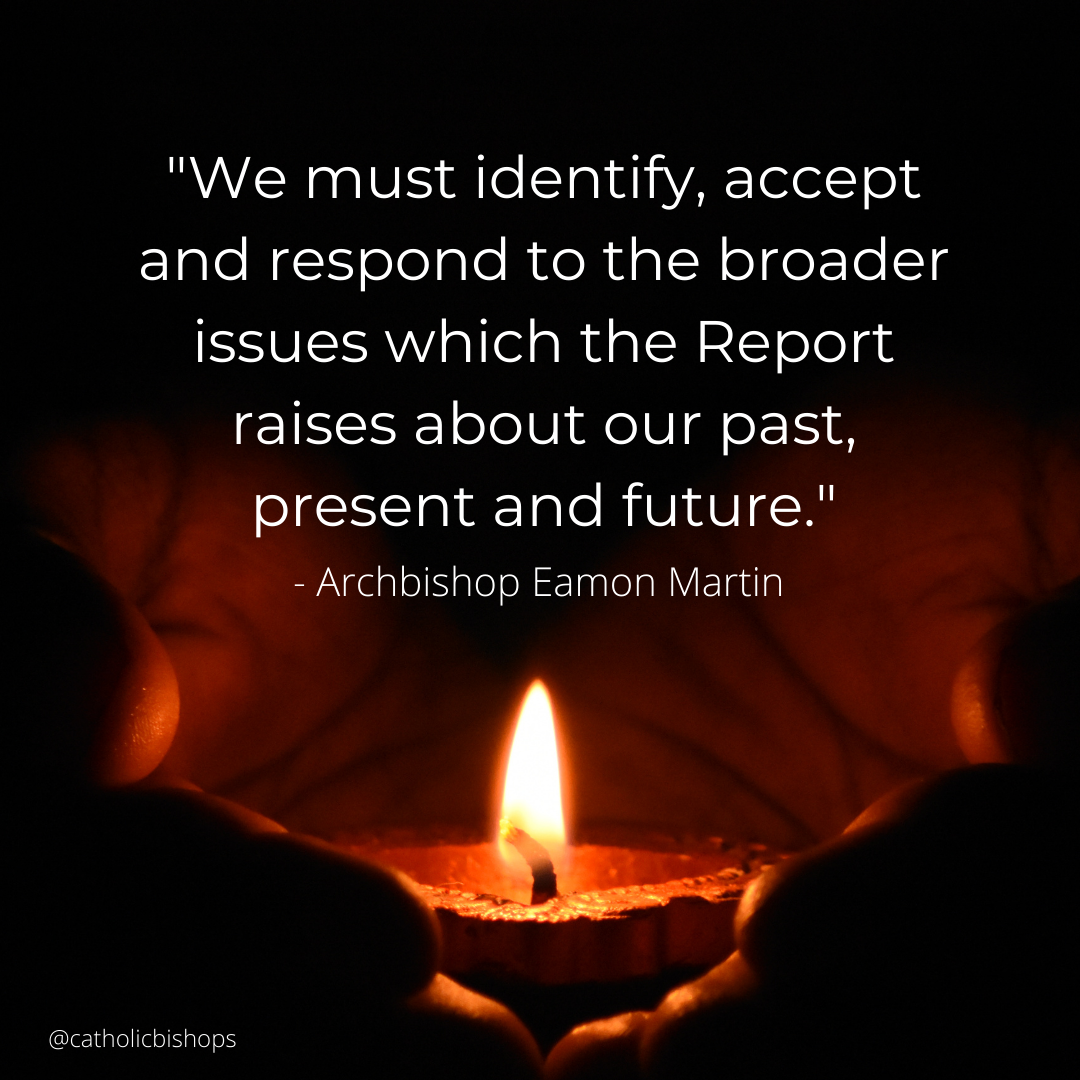Archbishop Eamon Martin has welcomed the publication of the Mother and Baby Homes Report, published on Tuesday 12 January. In a statement, Archbishop Martin said, “As a Church leader today, I accept that the Church was clearly part of that culture in which people were frequently stigmatized, judged and rejected. For that, and for the long-lasting hurt and emotional distress that has resulted, I unreservedly apologise to the survivors and to all those who are personally impacted by the realities it uncovers. Mindful of the Gospel of Jesus Christ, which calls us to protect life and dignity and to treat everyone – especially little children and all who are vulnerable – with love, compassion and mercy, I believe the Church must continue to acknowledge before the Lord and before others its part in sustaining what the Report describes as a “harsh … cold and uncaring atmosphere”.
“Although it may be distressing, it is important that all of us spend time in the coming days reflecting on this Report which touches on the personal story and experience of many families in Ireland. The Commission’s Report helps to further open to the light what was for many years a hidden part of our shared history and it exposes the culture of isolation, secrecy and social ostracizing which faced “unmarried mothers” and their children in this country.
“I ask all those who are in positions of leadership in the Church to study this lengthy report carefully and especially to spend time reflecting on the courageous testimonies of the witnesses to the Commission. Together we must ask “How could this happen?” We must identify, accept and respond to the broader issues which the Report raises about our past, present and future.”
The archbishop said, “Above all we must continue to find ways of reaching out to those whose personal testimonies are central to this Report. They have shown determination in bringing to light this dark chapter in the life of Church and society. We owe it to them to take time to study and reflect on the findings and recommendations of the Report, and commit to doing what we can to help and support them. The Report makes it clear that many are still learning about their personal stories and searching for family members. The rights of all survivors to access personal information about themselves should be fully respected and I again urge the State to ensure that any remaining obstacles to information and tracing should be overcome.
“The Commission believes that there may be people with further information about burial places who have not come forward. I appeal to anyone who can help to do so. All burial grounds should be identified and appropriately marked so that the deceased and their families will be recognized and never be forgotten.”
Concluding his statement, Archbishop Martin said, “This Report will hopefully speak not just to our past but will also have lessons for today and for future generations. As Church, State and wider society we must ensure together that, in the Ireland of today, all children and their mothers feel wanted, welcomed and loved. We must also continue to ask ourselves where people today might feel similarly rejected, abandoned, forgotten or pushed to the margins.
“This report will stir many emotions as it further uncovers disturbing and painful truths about our past. I commend those who have fought to have this story told and I thank those who have already been supporting survivors through various organisations and providing a platform for their voices to be heard.”
Archbisop Eamon Martin is Archbishop of Armagh, Administrator of the Diocese of Dromore and Primate of All Ireland.
ENDS


